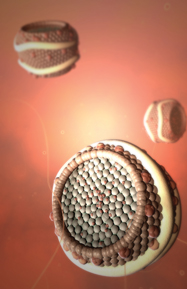Bringing health to low-income patients in the clinic and media
Erin N. Marcus, FACP, authors a practical health column directed to readers who don't have enough financial resources or access to care.
Erin N. Marcus, FACP
Occupation: Associate professor of clinical medicine, University of Miami Miller School of Medicine; author of a practical health column directed at readers who don't have great financial resources or access to care.
Current residence: Miami, Fla.
Hometown: Boston, Mass.
Family: Husband and two kids
Medical school: University of Massachusetts Medical School, Worcester, Mass.
Residency: Georgetown University Hospital, Washington, DC.
Something I wish I'd learned in medical school: As a first year student, I found my epidemiology course to be a bit dry. After I got out of residency and started taking graduate courses, I realized how interesting and relevant the subject can be.
I became an internist because: I liked how the internal medicine attendings took the time to explain how they reached their diagnoses and decided on their treatment plan, and I just felt that I fit in best with the specialty. I was close to some elderly relatives, and saw how important their internist was in their lives.
First job: After finishing my pre-med courses (I had been a history major and decided on medicine late in my undergraduate career), I worked as a health educator by day and a stringer for a small suburban newspaper at night, covering town planning and school board meetings.
Most rewarding aspect of my job: I enjoy working with the low-income patients in our clinic, who are very appreciative of our efforts. My column is directed at readers who are in a similar economic situation. I love writing, and I think it's important to disseminate evidence-based information in a way that readers will understand and remember.
Most meaningful professional accomplishment: I was fortunate to receive a career development award from the American Cancer Society, which has allowed me to develop a project to improve how we explain mammogram results to our patients.
Future goals: To develop my research projects in health communication, continue seeing patients in the community clinic setting, and continue to write.
Hardest medical lesson learned: Communicating effectively with patients from different backgrounds and facilitating end-of-life decision making is tough and is an area in which I am trying to improve.
Personal heroes: Harriet Tubman.
Pet peeves: As part of my research project, I am conducting focus groups with low-income women, and I am disturbed at how difficult it is to navigate the safety-net system.
Favorite ways to spend free time: Free time? Ha! Once upon a time I liked to travel; in recent years I've become a fan of the public library and the gym.
Favorite author or poet: Can't pick just one, but I often recommend that my students read essays by Marjorie Williams, a writer who died of liver cancer in her 40s, and Atul Gawande. Also, my friend Gina Barreca, a feminist humorist. (No, that is not an oxymoron.)
Most recent book read: Grimms' Fairy Tales, which I have been reading to my kids. The stories are far better than the Disney version!
Most meaningful non-medical accomplishment: Hopefully my kids, but that is a work in progress. Ask me again in 20 years.
Biggest regret: Not being better at time management—another constant work in progress.
If I weren't a physician, I would be: A horticulturalist.




